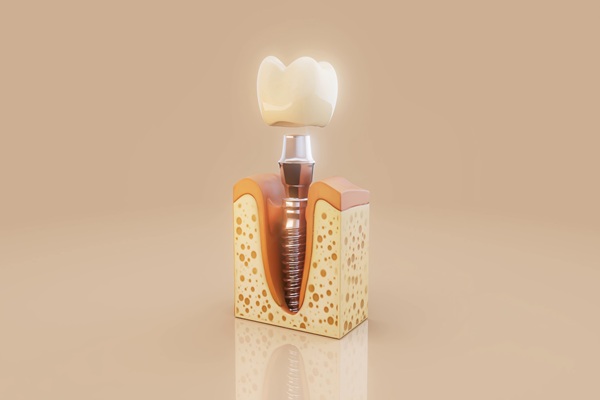Does TMJ Cause Jaw Pain?

TMJ disorder is a common issue that can result from teeth grinding and other dental concerns. Most instances are minor, but TMJ that is left untreated can linger or worsen into a more serious issue. Many instances of jaw pain are caused by TMJ, and it is helpful to understand the symptoms of TMJ and when it is encouraged to visit the dentist for treatment.
What to expect from TMJ symptoms
Everyone who endures TMJ disorder has a unique experience, but there are certain symptoms that are most common. The following is an overview of TMJ disorder, including what caused the condition, what the symptoms are and how a dentist can treat TMJ disorder long-term.
TMJ defined
Temporomandibular joint (TMJ) disorder refers to localized pain inside of the joint that connects the jaw and the skull. It is most commonly caused by teeth grinding or jaw misalignment, although there are other potential causes as well. In many instances, it is hard for dentists to diagnose the root cause of TMJ disorder. However, the symptoms of TMJ are very distinct, and it is easily recognizable when instances of TMJ disorder are present.
Symptoms of TMJ
Perhaps the most prevalent symptom of TMJ disorder is jaw pain. This is because the temporomandibular joint is located in the jaw and serves an essential role in the opening and closing of the mouth. When it is injured or overworked, then jaw pain can result. A more extensive list of symptoms of TMJ includes:
- Jaw pain
- Jaw tenderness
- Ear pain and ache
- Difficulty chewing
- Lockjaw
Minor jaw pain and tenderness may not require an immediate visit to the dentist, but more severe or chronic symptoms can become problematic and begin to affect your ability to function daily.
How to deal with TMJ jaw pain
It is important for patients who experience symptoms of TMJ disorder to consult with a dentist for prompt diagnosis and treatment. This ensures symptoms are dealt with in a timely manner before they worsen or linger for longer than what is necessary. If the symptoms are minor, then over-the-counter medication, icing and wearing a mouthguard to prevent teeth grinding may be all that is required to deal with TMJ jaw pain.
TMJ treatment options
TMJ varies in levels of severity. Some instances of TMJ can be treated through minor lifestyle changes, anti-inflammatory medication and icing the affected area. However, more severe instances of TMJ may require more extensive treatment and possibly surgery. A highly recommended alternative to lifestyle changes and over-the-counter medication for TMJ is Botox®, which is safe and non-invasive. If non-surgical treatments do not work, patients may consider a surgical procedure to deal with the concern.
Schedule a TMJ treatment consultation
Reach out to our friendly dental team today to learn more about TMJ symptoms and treatment options. We have experience treating patients who are dealing with the jaw pain caused by TMJ, and we make a strong effort to help each one of our patients to make a fast and full recovery.
Request an appointment here: https://parsonspointedentalcare.com or call Parsons Pointe Dental Care at (770) 538-1203 for an appointment in our Johns Creek office.
Check out what others are saying about our dental services on Yelp: TMJ in Johns Creek, GA.
Recent Posts
Jaw pain, headaches, and difficulty chewing can severely impact daily life. Fortunately, a TMJ dentist offers specialized care to diagnose and treat disorders of the temporomandibular joint (TMJ), providing relief and restoring comfort. These dental professionals specialize in identifying the underlying causes of TMJ disorders and developing treatment plans tailored to your specific needs.The temporomandibular…
It is usually hard to determine the precise cause of TMJ disorder. Issues affecting the temporomandibular joint may originate from different potential causes, and ascertaining the right cause can help determine the course of treatment. Jaw injury is a common cause of TMJ disorder, but the condition does not develop immediately after the injury; in…
TMJ pain makes it difficult for people who are affected to speak and eat.Fortunately, the condition, which affects over three million people, can be treated.The temporomandibular joint is a joint that acts like a hinge that connects the jawbone to the skull, with one on each side of the jaw. Temporomandibular joint and muscle disorder…
Wondering if you have TMJ? TMJ are the temporomandibular joints and muscles located on each side of the jaw. These joints and muscles allow your mouth to work properly, allowing you to chew, talk and swallow without issue. When you experience problems with your temporomandibular joints, that not only can interfere with your ability to…


